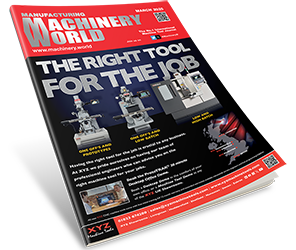Output and new orders growth among the UK’s small and medium-sized (SME) manufacturers picked up considerably in the three months to July. That’s according to the latest quarterly SME Trends Survey.
The survey of 324 respondents showed that total new orders rose at their fastest pace since 1995, off the back of strong growth in both domestic and export orders – both surpassing expectations of much weaker growth. Output also rose strongly over the past three months, but SMEs expect to see a significant slowing in the pace of growth for both production and orders over the next quarter, with domestic orders expected to flatten out. Optimism about export prospects in the year ahead also rose at a much slower pace.
Investment intentions were also a mixed bag. Firms expect to increase spending on plant & machinery in the year ahead, with investment plans at their strongest in the survey’s history (since October 1988). But investment on intangible areas – product & process innovation and training and retraining – is expected to fall at a pace unseen since the financial crisis.
Numbers employed again grew strongly again, matching the record pace seen in the previous quarter. However, concerns over skill shortages rose, with the number of firms citing skilled labour as a factor likely to limit output rising to its highest since 1988.
Pricing pressures also remained intense. Average unit costs growth remained elevated, and domestic prices also continued to rise strongly. In the face of continuing cost pressures, firms have been stockpiling, with growth in stocks of both raw materials and work in progress the fastest on record.
Alpesh Paleja, CBI Principal Economist, said:
“SME manufacturers will be feeling buoyant after a period of strong growth in orders and production. But cost pressures remain stubbornly high, and the clouds of uncertainty are still looming large, as seen in the deterioration in firms’ plans for investment in “intangible” areas.
“The retrenchment of training budgets is worrying at a time when skills and labour shortages are really biting hard, and highlights the need for urgent reform of the Apprenticeship Levy, so that it truly delivers for people and businesses.”
Key findings:
- 46% of firms said the volume of output over the past three months was up and 12% said it was down, giving a balance of +34%, the fastest pace of growth on record (since October 1988). Growth is expected to slow next quarter (+12%)
- 22% of firms said they were more optimistic about the general business situation and 17% were less optimistic, giving a balance of +4%
- 46% of businesses reported an increase in total new orders, and 15% a decrease, giving a balance of +31% – marking the fastest growth since 1995
- This was underpinned by strong domestic (+20%) and export orders growth (+35%)
- 36% of manufacturers said employee numbers were up and 9% said they were down, giving a balance of +26% – the same as the previous quarter
- 46% of manufacturers reported an increase in average unit costs, and 8% said they were down, giving a balance of +38%
- Concerns over skilled labour as a factor to limit output (31%) were the highest since October 1988.
Key findings – looking ahead:
- Total new orders (+10%), export orders (+12%) and output (+12%) are expected to grow at a slower rate over the next quarter, and domestic orders are expected to be broadly flat (+2%).
- Growth in average domestic prices (+15%), export prices (+11%) and unit costs (+28%) is also expected to slow over the next quarter.






